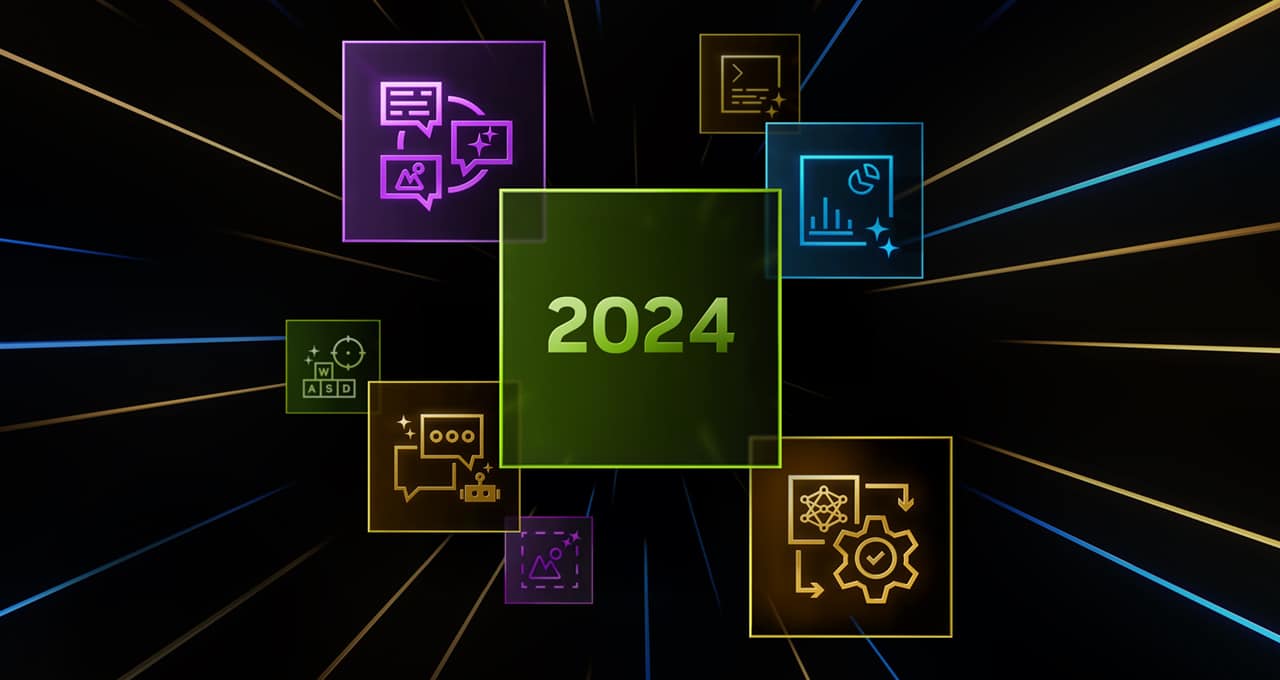For more than 20 years, we’ve invested in machine learning and AI research, tools and infrastructure to build products that make everyday life better for more people. Teams across Google are working on ways to unlock AI’s benefits in fields as wide-ranging as healthcare, crisis response and education. To keep you posted on our progress, we're doing a regular roundup of Google's most recent AI news across products, research and more.
Here’s a look back at just some of our AI announcements from November.

AI sparks a new age of discovery. We think of scientific progress as fast and unrelenting, but for many decades it has actually slowed. This month, Google DeepMind and the Royal Society convened the first AI for Science Forum to explore how AI is dramatically accelerating that trajectory. The forum brought together the scientific community, policymakers and industry leaders to explore how AI can unlock scientific breakthroughs and address some of humanity’s greatest challenges. A part of that involves the work happening at the intersection of policy and technology, which is key to applying AI to discover new medicines, enhance new energy sources and develop new solutions for the benefit of all people.

We shared our approach to learning in the AI era. Since our earliest days, we’ve led the way in helping people discover and understand the world around them. AI is making it possible to create even more powerful and interactive ways for people to learn about the world. So in November we convened leaders from education and technology at our Learning in the AI Era event to dive into tools like Learn About and NotebookLM and discuss our approach to helping people succeed on their quest for understanding. We also made LearnLM, a tool which has been recognized for its potential to make a positive impact on the world, available as an experimental model for preview access through Google AI Studio.
We launched new ways to help people shop for gifts this holiday season. There’s no shortage of comparisons between in-store and online shopping, but AI is transforming both experiences. For example, Google Lens is used for nearly 20 billion visual searches every month, and 20% of those searches are shopping-focused. If you’re in a store, you can immediately snap a pic, check reviews, find pricing and local buying options — and beginning this holiday season, you’ll be able to search for products directly in Maps to find nearby stores selling them.
We made the Gemini app available on iPhone. Our Gemini app is one of the most powerful learning modules and personal AI assistants available today. In November, we made Gemini available on iPhone so you can enjoy free-flowing, natural conversations with Gemini Live and get the most out of Google’s personal AI assistant. The launch also brings Gemini’s dazzling AI image generation capabilities, along with the option1for seamless connectivity to your favorite apps from Google — like YouTube, Google Maps, Calendar and Gmail — all within a single conversation right on your iPhone.

We released an updated AI flood forecasting model and expanded coverage to 100 countries. Devastating floods cause tragic casualties, widespread displacement and immense financial loss every year. To help, we released our new AI-powered flood forecasting model; expanded coverage to 100 countries in areas where 700 million people live; and provided access to our flood datasets to researchers and partners so they can discover even more ways to protect lives and respond to disasters.

We launched GenChess at the World Chess Championship. This new AI experiment and homage to one of the world's most popular games was developed by our Google Labs team. GenChess allows people to create stylized chess sets from a simple prompt — powered by Google’s most advanced image generation model, Imagen 3, and Gemini Flash. Once your stylized chess set has been generated, you can then use your custom set to play online.

AI helps tackle one of quantum’s biggest challenges. Quantum computers harness the language of the universe to run new computations at unprecedented speed. They hold the key to understanding questions and problems that are beyond the capability of classical computers. They’re also susceptible to errors — which makes accurately identifying and correcting these errors a critical task. This past month, our Google Quantum AI team and Google DeepMind introduced AlphaQubit, an AI-based decoder that identifies quantum computing errors with state-of-the-art accuracy. This can help quantum computers improve error correction capabilities — eventually opening the doors to scientific breakthroughs and many new areas of discovery.
Blog Article: Here





